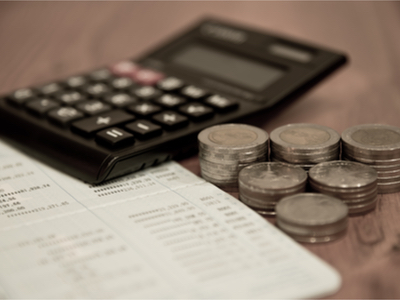 The pandemic has thrown many people’s finances off balance. Some have found themselves financially better off, but others have found it to be much more challenging.
The pandemic has thrown many people’s finances off balance. Some have found themselves financially better off, but others have found it to be much more challenging.
Financially, women have been more affected by the pandemic. With many reports confirming that women have taken on significantly more domestic chores and family care as a result of COVID-19, and it’s easy to see why. The knock-on effect is that women are more likely to be on reduced incomes, put on furlough, or lose their job. And this of course affects their finances.
Research from Prudential’s Family Wealth Unlocked report, which looks at intergenerational planning and wealth transfer between advised families amid the financial volatility and insecurity of the pandemic, found that women, who have taken financial advice, save well under the average for UK adults and men. The study found that respondents saved an average of £450 per month. And this soars to an average of £515 per month for male adults but drops significantly to £321 per month for women.
The top three financial concerns identified for the next 12 months were having to use savings to make ends meet (18%), investments losing money (21%) and having a reduced income (22%). Now seems like a good opportunity to assess your financial situation and try to get your finances back on track. To help, Kirsty Anderson Financial Planning Expert at Prudential UK shares her top tips.
1. Financial deep dive
Before making any financial decisions, it’s best to review your current situation. What are your outgoings vs income? A financial deep dive will show you where your money is going, what you could change and how much you could save to bolster your savings and investments.
2. Maximise your savings
The first rule for saving is to plan. Figure out how much money you spend and then budget for savings. Key to increasing your savings is to pay yourself first, so put money aside into a designated savings account straight after payday. This will help you to avoid falling into the end of the month spending trap.
3. Speak to an advisor
Covid-19 has prompted 38% of women to seek advice, so if you need help about your investments and retirement plans, then speaking to a financial adviser can help guide you through and plan for your desired outcome. Planning for your retirement will give you greater flexibility around how you use your pension savings and will help ensure you’re on track for the financial future you want.
4. Boost your pension pot
Topping up your pension in the final years before you retire could make a difference to the amount of money you will have to retire with. And the earlier you start, the more potential your fund has to grow. Maximising employer contributions, increasing your savings, and consolidating pension plans could go a long way to boosting your pot.
5. Track down lost pension pots
According to the Pensions Advisory Service, many people come to them asking about lost pensions. And luckily there are several ways you can find them. Increasingly people are switching jobs, and this can lead to having more than one pension pot – so it can be difficult to keep track. But the sooner you trace a lost pension, the better. You can try to track down lost pensions via the Pensions Advisory Service’s tool.
6. Your savings goals
There are many savings options and it really depends on what your goals are. The first step is working out both your short-term and long-term needs. Do you want to focus on your long-term savings for retirement, or do you simply want to save for a rainy day? Interest rates are ultra-low, so cash savers are getting almost no bang for their buck at the moment.
7. Utilise your ISA allowance
Often the first port of call for those looking to save is an ISA. They are simple, flexible and tax efficient – and you can save up to £20,000 a year. You have the option to save into a cash ISA or you could invest your money through a stocks and shares ISA. And the best part is that it’s all tax free – you pay no tax on any growth on your savings or any income withdrawn, whether it’s a cash or stocks and shares ISA.
8. Your state pension
Most of us pay national insurance contributions – and part of this goes towards your state pension. You can check how much you’ll get and when you’ll get it via the Government website – https://www.gov.uk/check-state-pension. If you’ve had time off work and missed some years, you can make additional national insurance contributions to bump up how much you’ll get at state pension age. You can contact HMRC for a national insurance statement or if you have any questions about national insurance and its impact on the state pension – search ‘national insurance’ at the gov.uk website or call 0300 200 3500.
9. If you have financial concerns
If you have money concerns whether that’s debt related, retirement, savings, or investments – you won’t be alone. The pandemic has had a huge impact on millions of people, so don’t suffer in silence. There’s lots of help available from charities, to your employer, to your financial adviser, your bank or loved ones.
WeAreTheCity covers the latest female centric news stories from around the world, focusing on women in business, careers and current affairs. You can find all the latest gender news here.
Don’t forget, you can also follow us via our social media channels for the latest up-to-date gender news. Click to follow us on Twitter, Facebook, Instagram, and YouTube.




